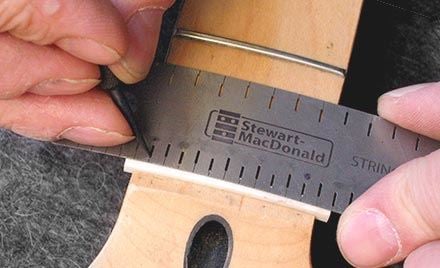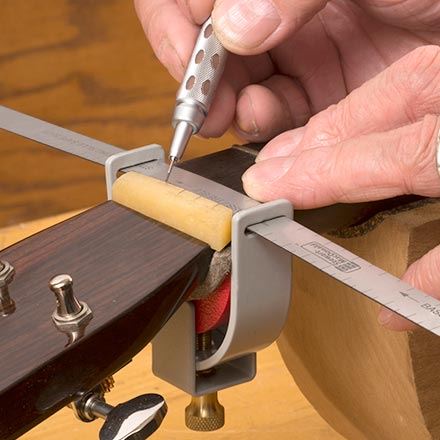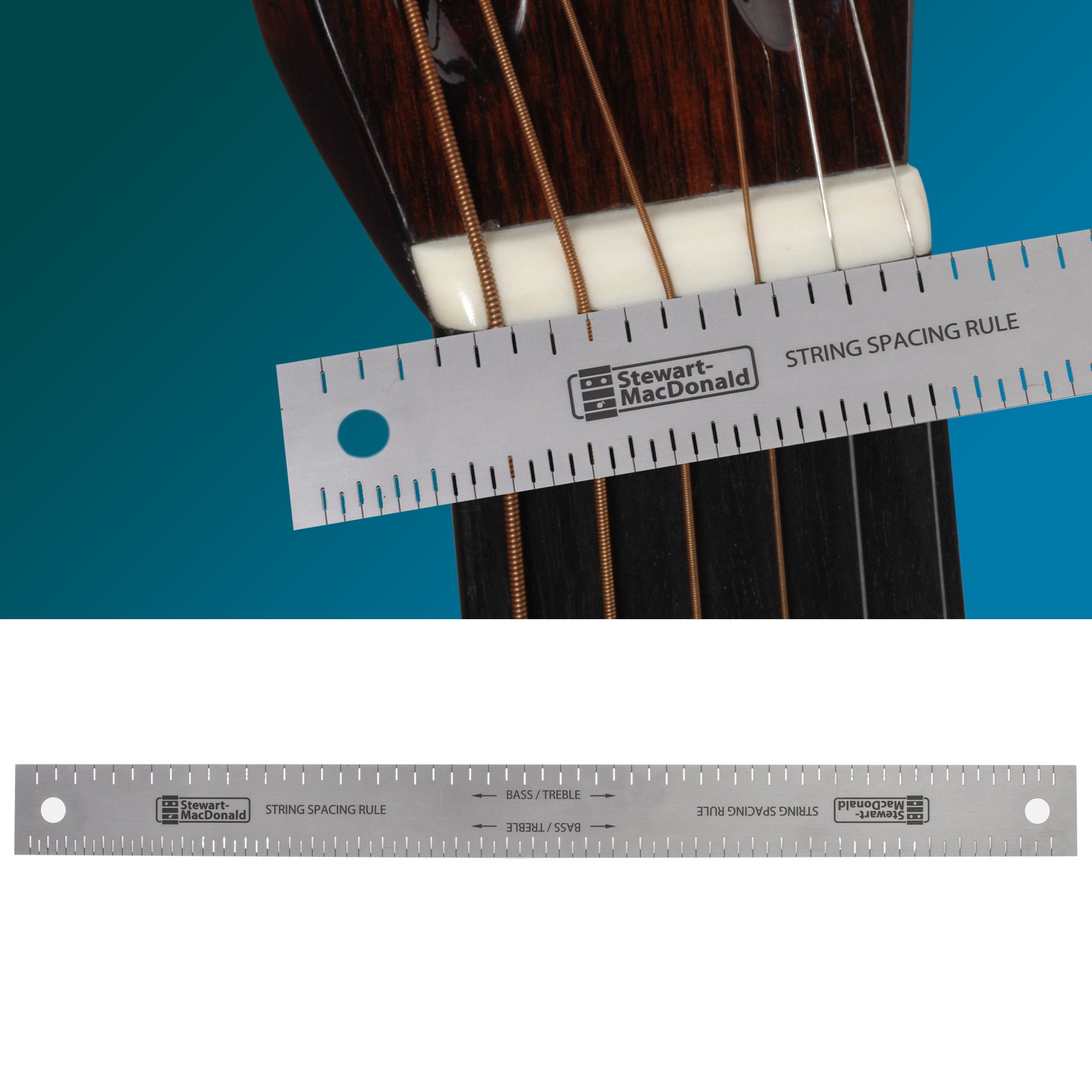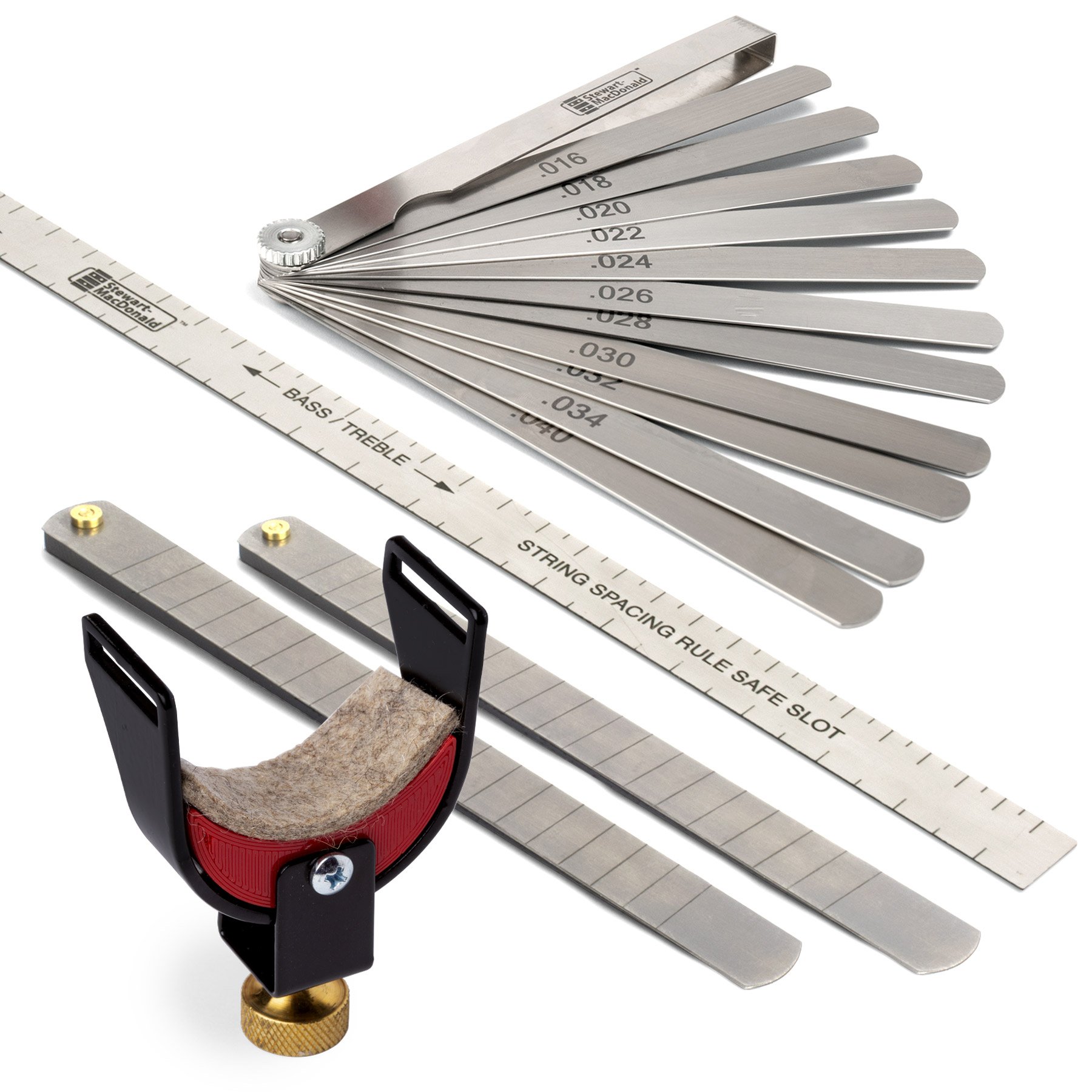String Spacing Rule Instructions
The String Spacing Rule locates string positions so that heavier strings get the wider spacing they need.
The String Spacing Rule locates string positions so that heavier strings get the wider spacing they need. The Rule's spacing is proportional, so that each space differs from the next by exactly .004". This creates the comfortable string spacing that players expect from quality instruments. There are two sets of lines on the rule (they overlap so that one set is located in the spaces between the other). Use either long or short set of lines, but don't mix the two: choose all your string locations for one instrument from the same set. If you mix the two sets, your strings will be irregularly spaced. Choose the locations for your two outer strings. (On a guitar, these would be the two "E" strings, and they're usually located about 1/8" in from the fretboard edge.) Mark these two positions on the nut or saddle. Place the rule on the fretboard against the nut, and align any line on the rule with your mark for the treble E string. Count out six lines to the left on the rule (for a banjo or bass, count four marks). Be sure all of the lines are the same set. Slide the rule left or right until you find the group of six lines that best matches the width of your two outside strings. Use a scribe or thin mechanical pencil to mark the string positions on the nut or saddle. A scribe or razor knife creates a shallow groove which makes a good starting point for filing the string slots. Raise the rule to the top of your nut blank using the flexible plastic shims included. Stacked feeler gauges can be used if you have a low nut, but they can be too stiff to conform to the radius of the fretboard. Proportional string spacing

Using the String Spacing Rule
Decide where to place the two outside strings
Match your two marks to the ruler
Mark places for the other strings
For use with the Safe Slot Nut Guard: a slim-size String Spacing Rule:


